Ford's new 2018 F-150 joins ranks of B20 diesel vehicle models

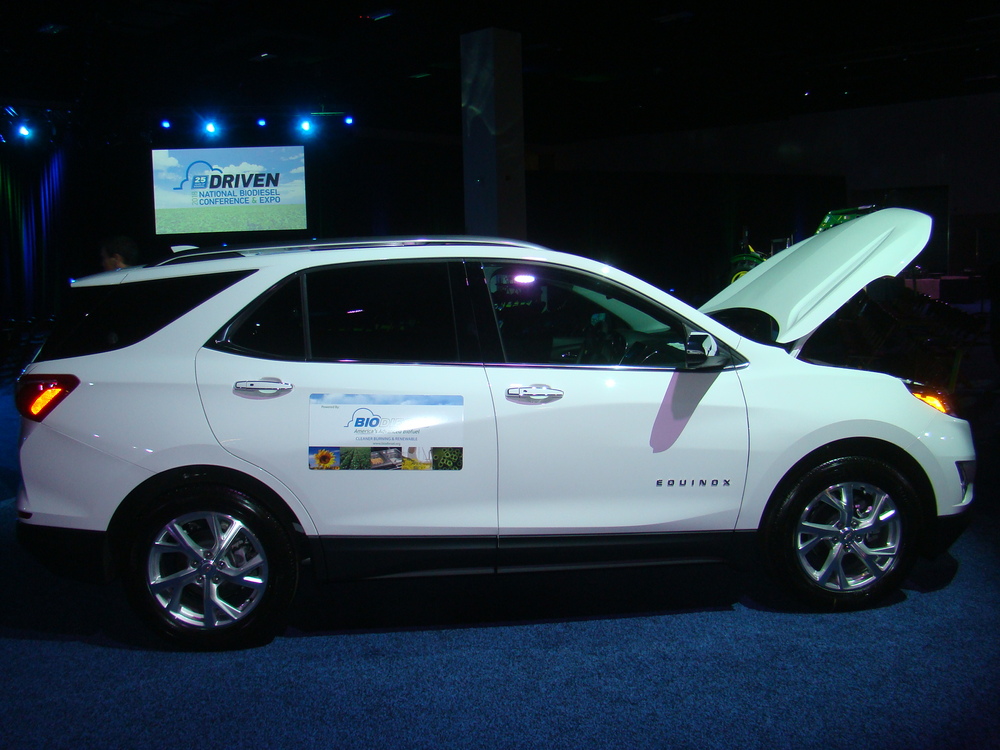
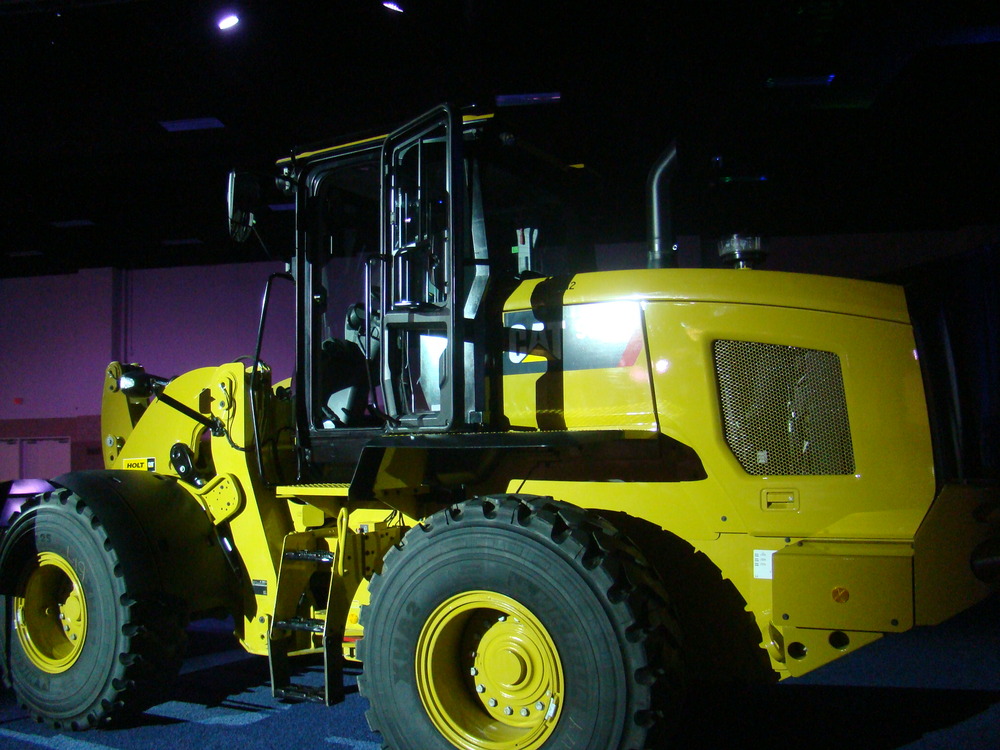
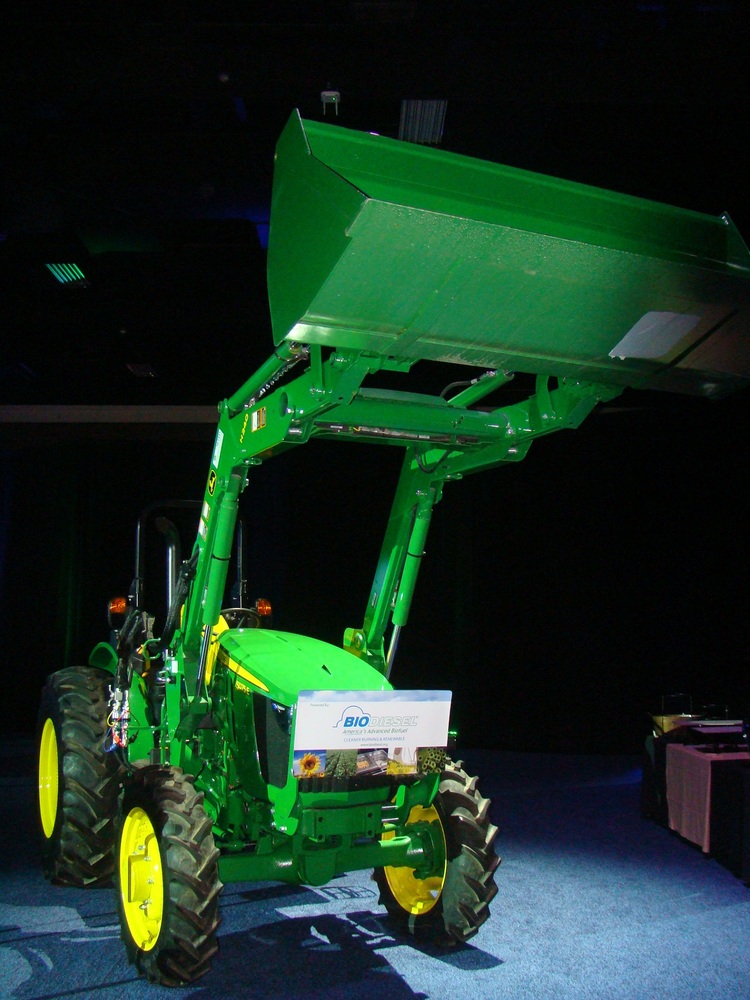
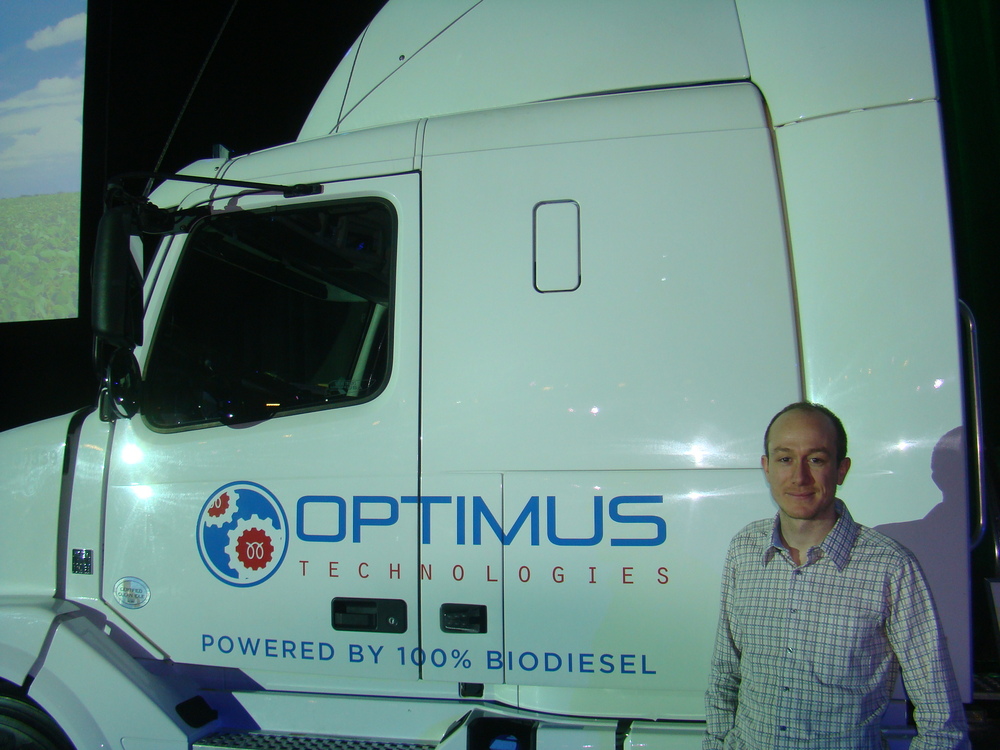
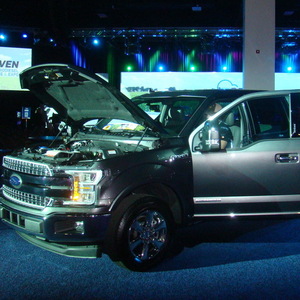
Photo: Ron Kotrba, Biodiesel Magazine
January 23, 2018
BY The National Biodiesel Board
Several automakers’ new 2018 diesel models are being featured in late January at the Fort Worth Convention Center as the U.S. biodiesel industry celebrates its 25th anniversary at the 2018 National Biodiesel Conference & Expo. And full-size diesel truck fans also have reason to celebrate this year as Ford—America’s truck sales leader—delivers the first-ever Ford F-150 diesel with a targeted EPA-estimated 30 mpg highway rating, best-in-class diesel towing and payload, and full B20 support. B20 is a fuel blend of 20 percent low-carbon biodiesel with petroleum diesel.
The Ford F-150 joins the F-250/350/450 Super Duty and F-650/750 medium duty trucks as well as the Transit van to round out Ford’s strong line-up of diesel models supporting the use of B20 biodiesel blends. Attendees at the National Biodiesel Conference have the opportunity to test drive the 2018 Ford F-250 Super Duty during a Biodiesel Ride-and-Drive Event at the Fort Worth Convention Center Jan. 24, and Ford’s new F-150 diesel is on display there in the Biodiesel Vehicle Technology Showcase. In mid-January, Ford dealers begin taking orders for the 2018 F-150 with the all-new 3.0-liter Power Stroke diesel engine, and deliveries begin this spring.
Dominic DiCicco, Ford’s manager of environmental policy and fuel quality, commented, “Ford is committed to offering our customers the power of choice with a wide range of alternative fuel and advanced powertrain options to help fleets reduce their carbon footprint and help our nation achieve its goals. Adding the new F-150 3.0L Power Stroke diesel to our lineup of diesel models supporting the use of clean, renewable, low-carbon B20 biodiesel blends, complements Ford’s sustainability goals, and we are excited to bring this product to market for our customers.”
Advertisement
General Motors is also bringing a strong lineup of 20 different diesel vehicle options to market in the 2018 model year, spanning the car, truck, van and compact SUV categories. General Motors supports B20 in all 20 of its diesel models. One of GM’s flagship models, the 2018 Chevrolet Silverado HD pickup with a 6.6L Duramax turbo diesel engine, as well as the new 2018 Chevy Equinox SUV with 1.6L turbo diesel engine, is featured at the National Biodiesel Conference compliments of The Thompson Group Classic Chevrolet in Grapevine, Texas.
The important off-road equipment market is also represented in the Biodiesel Vehicle Showcase by long-time biodiesel supporter John Deere, featuring its best-selling utility tractor, the John Deere 5075E with a B20-supported PowerTech turbocharged diesel engine. John Deere was one of the first original equipment manufacturers (OEMs) to get involved with biodiesel, and this year the company is celebrating an important anniversary of its own—the 100th year since the first John Deere tractor was built.
Advertisement
Equipment giant Caterpillar Inc. is also featured at the National Biodiesel Conference. The Cat equipment product line, consisting of more than 300 machines, sets the standard for the off-road equipment industry. Also long-time supporters of B20 biodiesel blends, Caterpillar is showcasing a CAT 938M Small Wheel Loader with a high torque, low speed C7.1 ACERT engine in the Biodiesel Vehicle Technology Showcase.
Customers from coast to coast have used B20 successfully in virtually every make and model diesel engine, and the vast majority of new diesel engines now have full OEM support for B20 with no vehicle modifications required. Yet in the ever-increasing drive to cut carbon and lower CO2 emissions, forward-looking fleets and users are investigating higher biodiesel blends to maximize the reduction in their carbon footprint. To address the interest, another vehicle showcase participant, Optimus Technologies, has developed aftermarket technology to enable B100 use even in the coldest climates. With its controller and second heated B100 tank system, Optimus is providing fleets an easy and cost-effective way to use pure B100 biodiesel in their existing vehicles and reduce carbon by 80 percent at a fraction of the cost of conversion to other fuel alternatives being considered that don’t provide as much carbon reduction, like compressed natural gas.
Scott Fenwick, technical director for the National Biodiesel Board and chairman of the ASTM Committee on Petroleum Products, Liquid Fuels and Lubricants, stated, “For 25 years, the National Biodiesel Board and the U.S. biodiesel industry have worked closely with our partners in the auto and engine manufacturing community to ensure that biodiesel—America’s advanced biofuel—continues to keep pace with the nation’s increasing demands for cleaner, more efficient and sustainable modes of transportation. As we continue to demonstrate that the biodiesel industry is producing a consistently high-quality product that meets specifications, support from the original equipment manufacturers grows.” Today, more than 80 percent of the diesel vehicles coming off production lines fully support the use of B20, and OEMs are beginning to look into higher blends as well.
Made from an increasingly diverse mix of resources such as recycled cooking oil, soybean oil and animal fats, biodiesel is a renewable, clean-burning diesel replacement that can be used in existing diesel engines without modification. It is the nation’s first domestically produced, commercially available advanced biofuel. Biodiesel supports roughly 64,000 jobs across the U.S.
The NBB is the U.S. trade association representing the biodiesel and renewable diesel industries, including producers, feedstock suppliers and fuel distributors.
Related Stories
Effective April 1, Illinois’ biodiesel blend requirements have increased from B14 to B17. The increase was implemented via a bipartisan bill passed in 2022, according to the Iowa Soybean Association.
Airbus is taking a significant step toward scaling the adoption of sustainable aviation fuel (SAF) by testing a new “Book and Claim” approach. This initiative aims to boost both supply and demand for SAF worldwide.
Signature Aviation, the world’s largest network of private aviation terminals, has announced the expansion of its blended SAF offering at six new locations across Europe following multiple blended SAF supply agreements.
Virgin Australia has entered an agreement with Viva Energy to SAF for its flights departing from Proserpine, Queensland. The SAF will consist of Jet A1 and a 30-40% synthetic blend component made from waste and residue feedstocks.
The largest single volume order of sustainable aviation fuel (SAF) by a DB Schenker customer has been placed by Mercedes-Benz. The order is for approximately 13,000 metric tons of SAF and is expected to reduce CO2 emissions by 40,000 metric tons.
Upcoming Events










